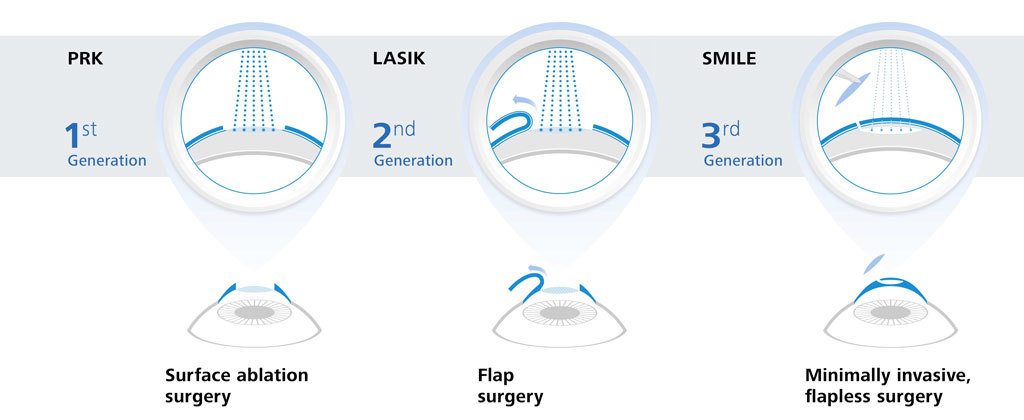Hesitating On SMILE Surgery? Delve Into Crucial Factors To Consider And Understandings To Help You Make An Educated Choice About Your Aesthetic Future
Hesitating On SMILE Surgery? Delve Into Crucial Factors To Consider And Understandings To Help You Make An Educated Choice About Your Aesthetic Future
Blog Article
Uploaded By-McDowell Moss
If you're considering SMILE eye surgical treatment, contemplate this: are you prepared to accept prospective visual flexibility, or does the idea of any kind of risks make you hesitate? Your decision will certainly rest on a careful balance of evaluating the benefits against the unpredictabilities. It's critical to dig deeper right into the subtleties of SMILE surgical procedure to make an informed selection that aligns with your aesthetic objectives.
Recognizing SMILE Eye Surgery
When taking into consideration SMILE Eye Surgical procedure, it is essential to understand the procedure and its benefits. SMILE, which stands for Small Cut Lenticule Removal, is a minimally invasive laser eye surgery that corrects common vision problems like myopia (nearsightedness).
Throughout the procedure, your eye doctor will make use of a femtosecond laser to create a little cut in your cornea. Via this laceration, a small disc of cells called a lenticule is removed, reshaping the cornea and remedying your vision.
Among 5 years after cataract surgery of SMILE Eye Surgical procedure is its quick healing time. Numerous patients experience boosted vision within a day or two after the procedure, with very little pain.
Furthermore, SMILE is understood for its high success rate in offering lasting vision modification. Unlike LASIK, SMILE does not require the development of a flap in the cornea, minimizing the danger of problems and allowing for a more secure corneal structure post-surgery.
Recognizing the procedure and its benefits is critical when taking into consideration SMILE Eye Surgical treatment for vision correction.
Benefits and drawbacks of SMILE
Thinking About SMILE Eye Surgical treatment for vision correction features different advantages and possible drawbacks.
Among the primary pros of SMILE is its minimally invasive nature, as it involves a little laceration and commonly causes fast recovery times. The treatment is likewise understood for triggering marginal discomfort and dry eye symptoms post-surgery compared to other vision adjustment techniques. In addition, SMILE has been revealed to provide exceptional aesthetic end results, with lots of individuals accomplishing 20/20 vision or better.
On the other hand, a prospective con of SMILE is that it might not appropriate for people with severe refractive errors, as the therapy array is somewhat limited compared to LASIK. One more factor to consider is that the learning contour for doctors implementing SMILE can affect the schedule of experienced service providers in specific areas.
It is necessary to evaluate these pros and cons very carefully when determining if SMILE is the best choice for your vision correction requirements.
Determining Qualification for SMILE
To figure out if you're qualified for SMILE eye surgical procedure, your ophthalmologist will perform a thorough evaluation of your eye health and wellness and vision requirements. During https://lanejfzto.blogdal.com/29653783/exactly-how-to-develop-a-dry-eye-alleviation-routine-daily-practices-that-make-a-distinction , elements such as the security of your vision prescription, the thickness of your cornea, and the total wellness of your eyes will certainly be assessed.
Usually, https://www.insider.com/woman-experiencing-chronic-eye-pain-after-laser-eye-surgery-tiktok-2021-6 for SMILE more than 22 years old, have a secure vision prescription for at the very least a year, and have healthy corneas without conditions like keratoconus.
Your ophthalmologist will certainly also consider your general eye health, any kind of existing eye conditions, and your way of life needs to determine if SMILE is the ideal selection for you. It's necessary to connect any particular visual needs or worries you may have throughout this analysis to ensure that the treatment aligns with your assumptions.
If you aren't qualified for SMILE, your optometrist might advise alternate vision improvement alternatives that much better fit your specific demands and eye health and wellness condition.
Conclusion
Inevitably, making a decision whether SMILE eye surgical procedure is right for you calls for careful factor to consider of your individual eye health and visual needs. Seek advice from your eye doctor to identify your eligibility for the treatment and weigh the prospective advantages and downsides. Remember to interact any type of issues or inquiries you may have during the analysis procedure to make an enlightened choice regarding your vision improvement choices.
